
Peter Baur
Prof Peter Baur is an Associate Professor at the School of Economics in the University of Johannesburg. He holds a Doctoral Degree in Economics from the same University. He has lectured internationally and across South Africa for many different universities. His community engagement has spanned both the private and public sector. His field of research includes cultural entrepreneurship, financial market behaviour, trade in arts and cultural and local development economics. He is a long serving member of the Centre for Local Economic Development (CENLED). He heads the Arts and Culture Research Unit at the School of Economics, a research division for the Arts and Cultural Trust, which is an international cross disciplinary inter university research unit.
Abstract:Exploring changing perceptions of university students in the peer mentoring programme during COVID-19 (download word document
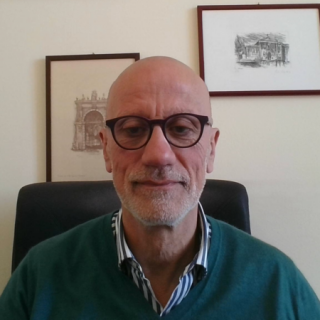
Maurizio Caserta
Maurizio Caserta is full professor of economics at the University of Catania. Holds a Ph.D. from UC London in the field of keynesian growth theory. Has published in the fields of institutional economics and labour market economics.
Abstract: The creation of social capital in the form of trust and cooperation among young students in Sicily, paving the way to economic and environmental sustainability (download word document)

Viviana De Angelis
Viviana De Angelis Research Fellow at the ForPsiCom Department of the University of Bari Aldo Moro has carried out research activities at the University of Limerick, Ireland. As a Siped member, she is the Scientific Coordinator of several publicly funded educational research projects (AREUMA CPD Program 2019-2021, FIED LAB Advanced Program 2019-2023 and FINCIP Innovation Program 2021-2026). She counts among her latest publications: the monograph Educating for good (Bari 2018), the scientific articles: Visual Communication and the promotion of Health: an exploration of how they intersect in Italian education (Digital Humanities Quarterly, 2018); Well-being, resilience and prosociality: their interactions in some family pilots (RIEF, 2022) and the collected volume The Art of Being Human (Bari, 2022).
Abstract: Play and global education in screen time (download word document)
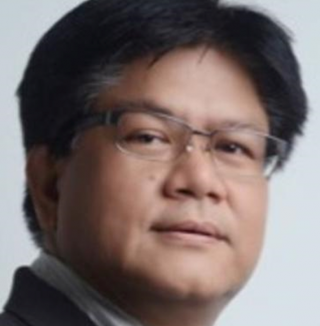
Mario Delos Reyes
Dr. Mario Delos Reyes is President-CEO of the Centre for Neighbourhood Studies Philippines (CeNSPh), a research and technology organisation committed to the sustainable and resilient transformation of communities and neighbourhoods; and Managing Director of the Urban Planning and Management for Development Results (UPMDR) Management Consultancy. He is a Professor and former Dean at the University of the Philippines School of Urban and Regional Planning (UP SURP). He is the International Co-Investigator and In-Country Lead Investigator for the Philippines of the Centre for Sustainable, Healthy and Learning Cities and Neighbourhoods. He received the Meritorious Public Service Award in the field of environmental governance.
Abstract: Learning Continuity amid the Health Crisis: The Case of the City of Manila, Philippines (download word document)
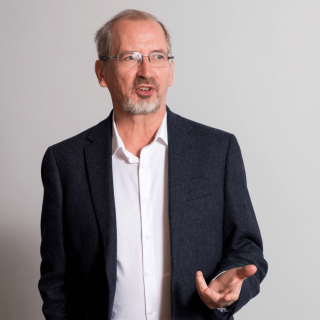
Bill Esmond
Bill Esmond is Associate Professor in the College of Arts, Humanities and Education at the University of Derby, UK. He researches comparative education policy and practice in technical, vocational professional and adult education, and their relationship with contemporary forms of work and society. Current interests include concepts of autonomy across educational and work spaces. He is the author (with Liz Atkins) of a recent account of stratification in technical and post-school education, ‘Education, Skills and Social Justice in a Polarising World’ (Routledge).
Abstract: Reconnecting culture and technology in post-COVID education in Derby (download word document)
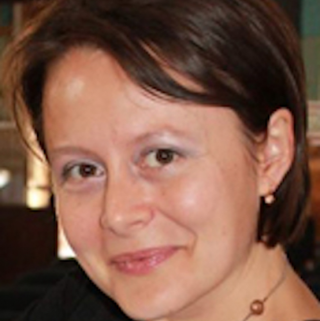
Lavinia Hirsu
Dr Lavinia Hirsu is Senior Lecturer in the School of Education at the University of Glasgow. She has expertise in applied linguistics, rhetoric and writing studies, digital literacies, language inclusion and integration, and translingual pedagogy. She has been involved in international projects funded by the British Academy, British Council, and AHRC. Her most recent work examines new pedagogies and the transformation of literacies in VR environments and through the use of robots as reading companions. Her work has appeared in Computers and Composition, Higher Education, Language and Intercultural Communication and International Journal for Disaster Risk Reduction.
Abstract: The critical role of cultural protocols in times of permacrisis (download word document)
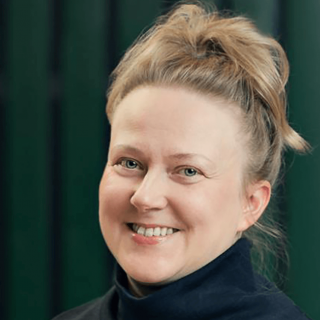
Sari Hirvonen-Kantola
Dr. Sari Hirvonen-Kantola is a Postdoctoral Researcher at the Oulu School of Architecture, University of Oulu. She has worked with smart cities and municipalities to detect and develop integrative urban development management practices, especially from the perspective of the collaboration of land-use planning, and business and innovation development. Currently, Hirvonen-Kantola also acts as Engaged Research Officer in UNIC The European University of Post-Industrial Cities.
Abstract: Policy capacity for smart city development: experiences in the City of Oulu (download word document)
Abstract: Innovation Ecosystem Orchestration Activities in Spatial Planning Agencies (download word document)

Jarkko Ihalainen
MD, PhD from University of Helsinki. Specialist in Laboratory Hematology with a degree in Healthcare Administration. Active in several Finnish and European organizations in areas of healthcare contingency and blood services. Has a great interest in organization cultures, standardization and somatic techniques.
Abstract: Effects of organization structure on the trajectory of pandemic response: an activity theory analysis (download word document)

Rhiannon Jones
Dr Rhiannon Jones, Associate Professor (Civic) is an artist researcher and thought leader in Social and Design innovation through Civic Practice based at University of Derby, UK. She is a published scholar and holds the positions of chair of Cumulus: Contemporary Art Working Group and Trustee of New Art Exchange. She co-founded the International artistic research network, InDialogue, and is a UK researcher for Design for Emergency, (DESIS). She holds a membership with NCCPE and is a Midlands Co-creation Change Maker. As founding CEO of Designing Dialogue CIC, she created S.H.E.D, a unique space co-designed with communities; for the shedding of preconceptions about people and place. Working strategically with the Football Association, local authorities, H.E sector and creative Industries to stimulate debate on regenerative placemaking.
Abstract: Reconnecting culture and technology in post-COVID education in Derby (download word document)

Jari Kaivo-oja
Dr Jari Kaivo-oja is Research Director at the Finland Futures Research Centre at the University of Turku. He is Adjunct Professor at the Faculty of Science at the University of Helsinki (Planning sciences) and at the University of Lapland (Foresight and innovation research). He has recently (2018-2022) acted at the Strategic Research Council (SRC) of the Academy of Finland. Dr Kaivo-oja is Professor of Social Sciences at the Kazimiero Simonavičiaus University. He has worked in foresight and innovation management projects for the European Commission, for the European Foundation, for the Nordic Innovation Centre and recently for the European Parliament. In 1995-2022 he has published about 270 scientific articles and chapters of academic books.
Abstract: Sustainable Scenario Learning in the Modern Urban Planning Processes. General Sustainable Development Theory and Vital Urban Planning Challenges (download word document)
Abstract: Visionary Long-run City Planning: Key Concepts and Approaches of Foresight and Anticipation Science (download word document)
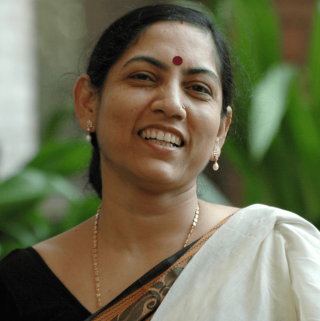
Debolina Kundu
Dr. Debolina Kundu is a Professor at the National Institute of Urban Affairs, India and has around 25 years of professional experience in the field of development studies. She is currently the chief editor of journals – Environment and Urbanisation, Asia (SAGE) and Urban India (NIUA). She has worked as consultant with, ADB, LSE, IIDS, UNDP, UNFPA, UNICEF, UNESCAP, KfW, GIZ, Urban Institute, Washington on issues of urbanization, migration, urban development policies, municipal finance, governance and exclusion. She is the Country Investigator – India for the GCRF Centre for Sustainable Healthy and Learning Cities and Neighbourhoods, supported by UK Research and Innovation.
Abstract: Differential Impact of the Pandemic on Neighbourhood-level Subjective Well-Being: A Tale of Two Indian Cities (download word document)

Päivikki Kuoppakangas
Päivikki Kuoppakangas, D.Sc. (Econ. & Bus.Adm.) is currently PI in METKU-project scrutinizing perceived meaningfulness of work and customer value co-creation in public sector organisations, funded by the Finnish Work Environment Fund at Tampere University, Faculty of Management and Business, Finland. Researcher in PURA and SEGRA projects: inspecting the role of social work and management in combating regional inequality, segregation, and homelessness in large and developing Finnish cities within the specific framework of housing social work. Kuoppakangas’ areas of research have included change management and decision-making, reputation management and branding in public organisations including higher education, co-creation of public services, utilization ICT in public sector services and impact evaluation.
Abstract: Tapped co-capacity enabling perceived meaningfulness of work (download word document)
Abstract: Co-benevolence enhancing change management and clients’ relational agency in urban renewal (download word document)

Catherine Lido
Dr Catherine Lido is a Professor Psychology and Adult Learning at the University of Glasgow. She is a Social Psychologist with a PhD in gender stereotypes in the workplace. She is also Associate Director of Urban Big Data Centre, Deputy Director of the PASCAL International Observatory for Europe, and lead investigator on several funded projects on gendered inequalities in science and technology. Dr. Lido has over 20 years’ experience lecturing and researching the psychology of stereotyping, prejudice and diversity, and she acts as a visiting lecturer at the University of North Carolina Wilmington on the psychology of human diversity.
Abstract: Symposium: Cultural Heritage & arts-based Education- Linking the Past, Present and Future… (download word document)
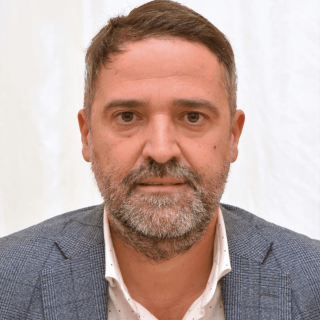
Giuseppe Liverano
Giuseppe Liverano is a university researcher for the concurring sector 11/D1 – Pedagogy and History of Pedagogy and the scientific disciplinary sector M-PED/01 General and Social Pedagogy at the Ionian Department In “Legal and Economic Systems Of The Mediterranean: Society, Environment, Cultures. He has published monographs and articles on pedagogy in scientific journals and band A (Anvur-Italy). He is a teacher in general pedagogy and human resources planning and training at the Ionian department of the University of Bari. He is a member of several pedagogical scientific societies
Abstract: Promoting sustainability in times of pandemic through quality, equitable and inclusive education: a review of good practice (download word document)
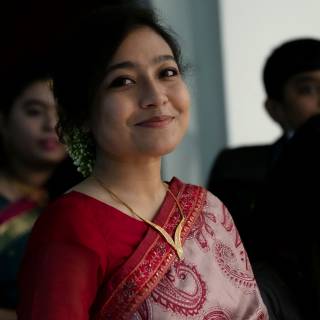
Nishat Tasnim Maria
Nishat Tasnim Maria is an Urban Planner, currently working as a Research Associate at the GCRF Centre for Sustainable, Healthy and Learning Cities and Neighbourhoods (SHLC) project in Bangladesh. Maria has previously worked in the projects related to poverty and liveable regional cities with national and international organisations. Her research interests broadly include biophilic urbanism and community planning.
Abstract: Learning during COVID-19: experiences from the low-income neighbourhoods of urban Bangladesh (download word document)
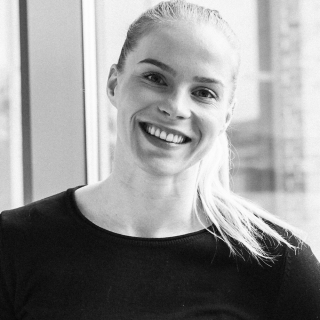
Marjukka Mikkonen
Marjukka Mikkonen holds a M.Sc. (Admin.) from Tampere University, Finland and M.Sc. in Innovative Governance and Public Management from the University of Agder, Norway. She works as a Doctoral Researcher at the Faculty of Management and Business, Tampere University. Her research interests include themes such as leadership, management and governance; gender; digitalization. Her work has been published in scholarly journals and edited books including Administrative Sciences, Sport in Society and Routledge Frontiers.
Abstract: Lessening Inequalities within Decision-Making Positions in Sport: Exploration Through Institutional Lens (download word document)
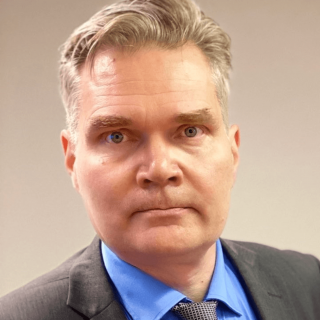
Yrjö Myllylä
Yrjö Myllylä, Doctor of Social Sciencies, works as a specialist researcher at the Finland’s Future Research Center of the University of Turku. In addition, Yrjö Myllylä works at RD Aluekehitys Oy as a Delphi manager. Myllylä specializes in the application of future research and forecasting methods in regional development and strategy processes. As an expert in futures research, Yrjö Myllylä is known especially as an application of the Delphi method and its developer. He is known also as a researcher familiar with Arctic issues, which was also the theme of his dissertation.
Abstract: Future Foresight Study of the Reference Laboratory System in the environmental field in Finland: It is the matter of emergency supply how to measure all threats coming to health from the environment (download word document)
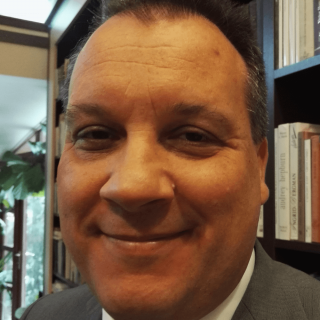
Balázs Németh
Dr. Balázs Németh is an Associste Professor of Adult Learning and Education at the University of Pécs. He is a researcher and advocate of learning cities and communities. Dr. Németh is Vice-Diretor of PASCAL Int. Observatory, member of ASEM LLL HUB RN6 for Learning Cities, eucen President and Senior Advisor of Global Learning City Pécs Programme.
Abstract: Civic Activists for Well-being and Social Inclusion. Experiences of Global Learning City Pécs, Hungary (download word document)
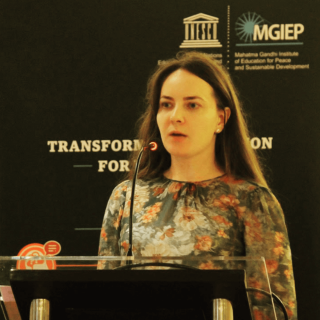
Yulia Nesterova
Dr Yulia Nesterova is Lecturer in International and Comparative Education at the University of Glasgow. Her research centres around inequalities and injustices in education and community/youth engagement for education and peace. She is working on a project investigating spatial inequalities in education in seven countries across Africa and Asia and a project with UNESCO IIEP exploring how cities in work towards SDG4. Yulia is also leading a project on community-based peacebuilding and co-leading a project on engaging youth in peace processes. Prior to joining Glasgow, she worked with UNESCO. She has conducted research in Africa, Asia, Europe, and the Pacific.
Abstract: Learning for global health in cities – Community resilience and the strengthening of learning systems (download word document)
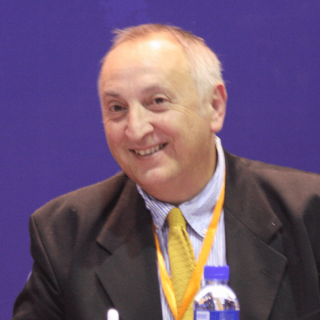
Michael Osborne
Michael Osborne is Professor of Adult and Lifelong Learning at the University of Glasgow, and Director of the Centre for Research and Development in Adult and Lifelong Learning within the School of Education. He is also the European Director of the PASCAL Observatory on Place Management, Social Capital and Lifelong Learning and one of the core members of the Lower to Middle Income Countries research group at the university. His main interests in research are: the role of education in international development, urban big data, universities’ engagement with communities, widening participation to higher education, teaching and learning in higher education, the VET/HE interface and the development of learning cities and regions.
Abstract: Cities as laboratories of innovation for SDG4 (download word document)

Juha Post
Post is a doctoral researcher in the University of Vaasa in the Faculty of Social Sciences and its doctoral program. His research focuses on the Finnish social and health care transformation, Wellbeing Services Counties, and dynamic capabilities that emerge and develop through the transformation process. Post has a master’s degree both in law and in economics. He has worked for 15 years in public administration organizations in the state administration and municipal sector.
Abstract: The Emergence and Development of Dynamic Capabilities when Building Wellbeing Services Counties – A Capability-based Perspective on the Organisational Change Process in the Public Administration Organisation (download word document)

Marinda Pretorius
Marinda Pretorius is a senior lecturer in the School of Economics at the University of
Johannesburg. Dr Pretorius focuses in her research on various economic fields including,
for example, subjective well-being, sovereign credit ratings and forecasting methods of macroeconomic variables. Her current research is centred on subjective well-being issues of, inter alia, students and informal sector labourers. She has published in various national and international journals.
Abstract: Individual subjective well-being of informal day labourers during the Covid-19 pandemic: A case study of Johannesburg, South Africa (download word document)
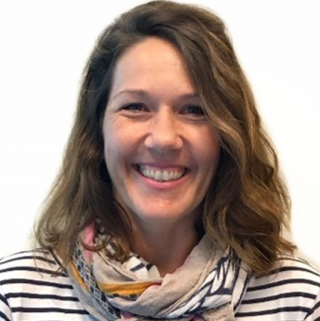
Lara Pugh
With over twenty years in education and project management including speaking in various contexts nationally, Lara will collaborate with lifelong learning stakeholders across Wollongong City Council and the Local Government Area to establish Wollongong as a UNESCO-accredited Learning City by 2024.
Abstract: Libraries and Learning Cities: Exploring varying roles of engagement across the globe (download word document)
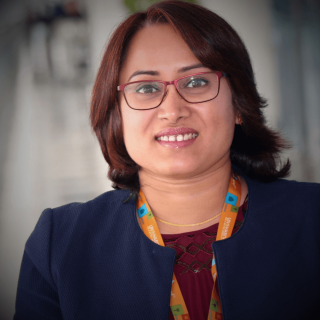
Shilpi Roy
Dr Shilpi Roy is an Associate Professor of Urban and Rural Planning Discipline at Khulna University, Bangladesh. She is currently the In-Country Lead and Co-investigator of the Centre for Sustainable, Healthy and Learning Cities and Neighbourhoods (SHLC) project funded by UKRI. She is also the focal point in Bangladesh for UNESCO-IIEP ‘Local challenges, global imperatives: cities at the forefront to achieve Education 2030’ project. Shilpi has been working on urban planning and policy evaluation concerning sustainable, healthy, and learning cities and neighbourhoods.
Abstract: Learning during COVID-19: experiences from the low-income neighbourhoods of urban Bangladesh (download word document)
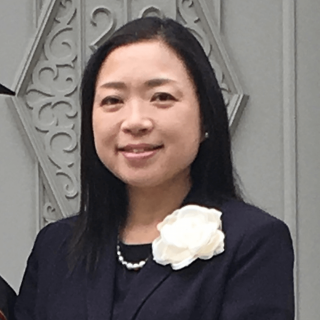
Yukiko Sawano
Yukiko Sawano is Professor of Comparative Education and Lifelong Learning at the University of the Sacred Heart, Tokyo. From 1988–2005, she worked for the Education Ministry of Japan, and at the National Institute for Educational Policy Research (NIER) as a senior researcher of the Department of Lifelong Learning Policy Research. She has also acted as Overseas Research Advisor to the Japanese Ministry of Education, President and board member of the Japan Association of Lifelong Education, a board member of Japan Association of Comparative Education and Co-cordinator of Research Network on Learning Cities /Learning Regions of ASEM Lifelong Learning Hub.
Abstract: Connecting Citizens Together Through Lifelong Learning Planning : A Case of Hamura-city, Tokyo (download word document)
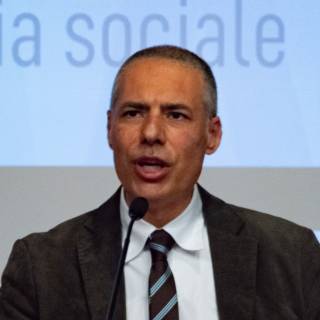
Giovanni Serra
Giovanni Serra is a research fellow at the University of Roma Tre in the adult education sector. He carries out researches in the field of learning acquired in non-formal and informal contexts, applied to people who work in the third sector, in the voluntary and civil service, as well as to homeless people. For over thirty years he has been carrying out training activities for operators and managers in the non-profit sector, using participatory methods to facilitate learning.
Abstract: Resources to deal with uncertainty (download word document)
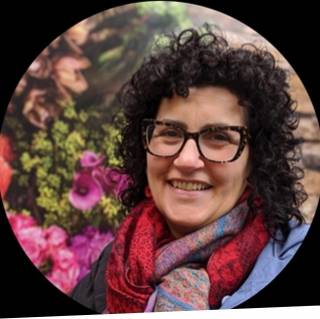
Diane Tabbagh
An experienced and committed professional with over 25 years international experience working in community education, refugee, asylum seeker, migrant and hospital environments.
Diane has worked as Coordinator Learning Community at Wyndham City Council since October 2014, where she has overseen the development and implementation of Wyndham’s Learning Community Strategies. A career highlight has been leading Wyndham’s acceptance into UNESCO’s Global Network of Learning Cities and the receipt of a Learning City Award.
Abstract: Libraries and Learning Cities (download word document)

Annie Tubadji
Annie Tubadji is a cultural economist and regional economist. Her research paradigm is termed Culture Based Development (CBD). Annie is currently an Assistant Professor in Economics at the Economics Department of Swansea University, Wales, the UK. She is the official representative of Swansea University at the UNESCO-OECD PASCAL Network.
Abstract: YOU’LL NEVER WALK ALONE – Loneliness, Religion and Economics in Times of Adversity (download word document)
Abstract: Knowledge Inequality by Design – People and Places Left Behind in Learning (download word document)

Jari Vuori
Professor Jari Vuori has been over 30 years researcher and teacher of public, private hybrid management and leadership, health policy and social care. He has worked e.g. as a member of European Health Policy Group, and Finnish representative of EU-COST ACTION. He worked as post doc researcher of Academy of Finland at Georgia Tech 1998 -1999 and research fellow Warwick Business School 2010-14 and professor 2001- 2018 at the University of Eastern Finland, and visiting professor London School of Hygiene & Tropical Medicine 2018-2020. Currently, he is visiting professor at Arizona State University, visiting scholar at Tampere University and Scientific Advisor of Headai Ltd.
Abstract: Dilemmas of governing: the self-organizing permacrisis of the polarized societies (download word document)
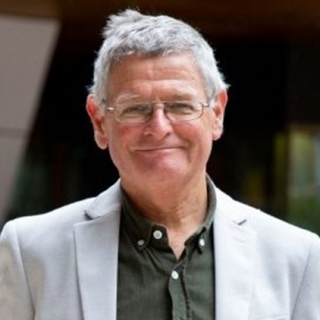
Bruce Wilson
Bruce Wilson is Director of the European Union Centre of Excellence at RMIT. In this role, he provides insights to and leads research and debate on EU-Australian relations, encouraging mobility for staff and students, and for building partnerships between Australian universities and organisations and their European counterparts.
Abstract: Place-Based Innovation Systems as a Means to Sustainable Transitions (download word document)
Abstract: Learning Cities and the United Nations 2030 Agenda: A Transformative Role? (download word document)
Did you notice an error?
Please notify us by email
